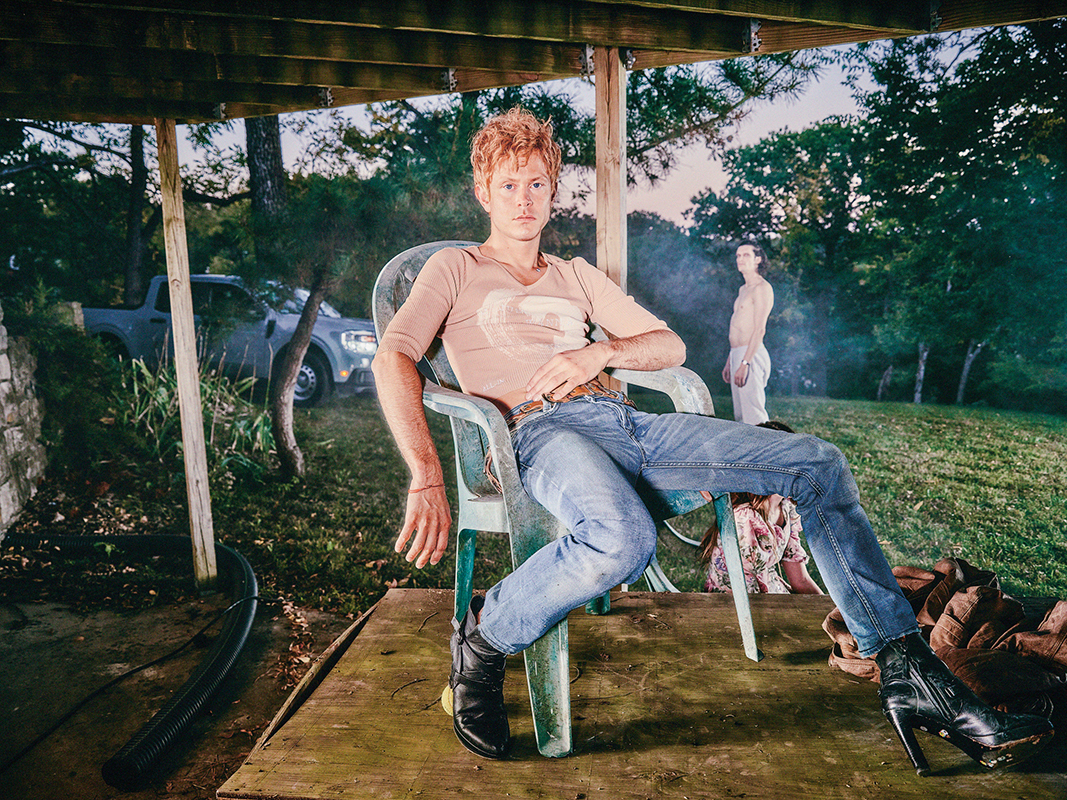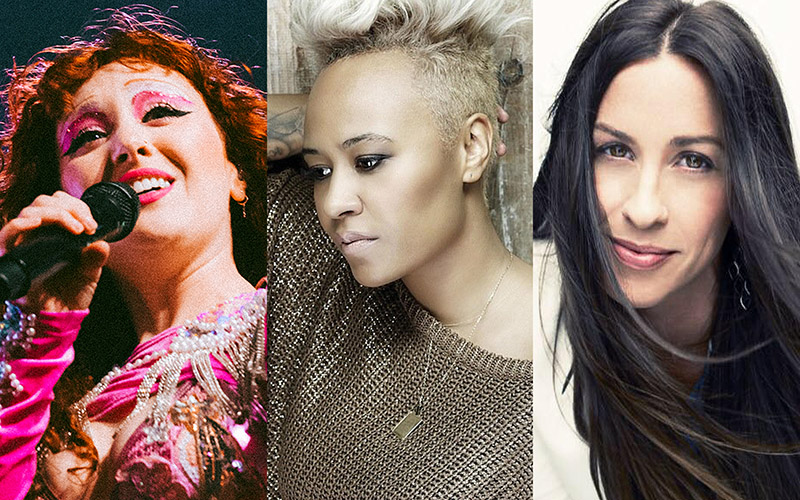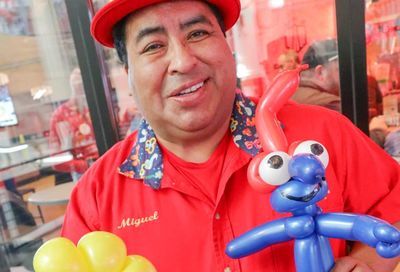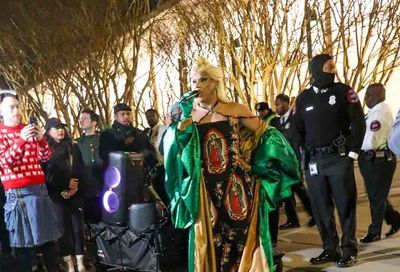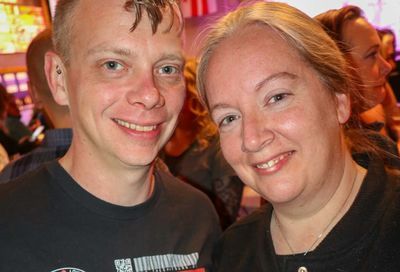Boy Wonder
Though he's far less shocking than he was 30 years ago, Boy George still has the power to make us gasp, let alone dance

Boy George
(Photo by Todd Franson)
MW: I think it still can be shocking for people to see somebody who is androgynous, the way you were when you came onto the scene more than 30 years ago. Do you feel like the culture has progressed any?
BOY GEORGE: There’s always somebody who’s going to get freaked out. You know, the world is quite normal in a lot of ways, and if you get into a lift in a hotel with makeup on and a funky hat and some snazzy clothes, there’s always somebody that’s going to get a little uptight about it. I don’t think the world has changed dramatically. You know what I mean? Obviously if people recognize you, then you’re someone famous, and that generally removes any kind of hostility. Because when you’re famous you kind of get away with being a little bit more than everyone else. But if people don’t know who you are, they’re still kind of as awkward as they have ever been. I don’t think it’s changed. Generally the world is pretty normal. Most people go out of their way to kind of assimilate. Everybody wears the same kind of clothes. There’s a kind of general uniform that people wear, whether they’re into hip-hop or rock-and-roll. Or they just have no relationship with fashion at all.
In some ways the world is less homophobic, because you know we see gay people on TV. People know the word gay, it’s part of the culture now. So people are less homophobic in some ways, and more homophobic in other ways. It’s a funny old thing.
MW: We still don’t see a huge gay megastar, who’s constantly on top of the charts, or a gay leading man who stars in hit blockbuster movies.
BOY GEORGE: I think America is very interesting at the moment. Because who would have thought that America would be the place where black athletes would come out? So I think in a way it’s a very interesting time. I think it’s kind of profound in a way, that America’s the place where we are getting our first athletes. But not just athletes, black athletes. I think it’s very significant. It’s amazing to me. It makes me feel kind of, I don’t know, proud of America. [Laughs.] It’s radical. It is radical.
MW: When you first started out, did people tell you to act more normal, or tone down your androgynous appearance?
OY GEORGE: [Laughs.] No, no. Nobody told me that. The first time Culture Club appeared on TV, the reaction from the industry was quite hostile. People wrote in the press, “What is it? What is that thing?” And a lot of the TV shows that we were booked on cancelled us. But the public reaction was very warm. And positive. And that’s always kind of been the way with me. Whatever’s happened in terms of the media, and the industry — people on the street have always been quite sweet to me. People when I meet them seem to kind of like me. And that was really what happened in the beginning of my career. I came to music already kind of quite out there. I had been dressing up in the clubs, and I was quite eccentric. So nobody would have told me, dress down, or be more normal. No, they would never have done that. I was quite formidable at 19.
MW: Is it true Culture Club is getting back together and has plans to release new music?
BOY GEORGE: Yeah, we are looking to start recording in May of this year — at least do some of the recording that we’ve been planning. [A revived] Culture Club is kind of the next part of my master plan.
MW: What else is part of Boy George’s master plan?
BOY GEORGE: Obviously, at the moment it’s a very exciting time. There’s lots of great things happening. For me, I feel like it’s a real musical time. I feel like, when I played last year, when I did live shows last year it really felt like people were listening, as opposed to kind of in the old days, there was a slightly more obsessive kind of attitude towards me, and I don’t think people were particularly listening to what I was doing. And this time around it was slightly more musical and it felt like people were listening more. And I think having been DJ’ing for the past 25 years, having a long break has been a kind of positive thing in a way. Because it feels like people are kind of focusing on what I’m doing musically, and less on the kind of surface stuff, which is what I want. So in a way the master plan is to kind of have more of that really, and make it much more of a musical kind of thing. And that seems to be what’s happening.
Support Metro Weekly’s Journalism
These are challenging times for news organizations. And yet it’s crucial we stay active and provide vital resources and information to both our local readers and the world. So won’t you please take a moment and consider supporting Metro Weekly with a membership? For as little as $5 a month, you can help ensure Metro Weekly magazine and MetroWeekly.com remain free, viable resources as we provide the best, most diverse, culturally-resonant LGBTQ coverage in both the D.C. region and around the world. Memberships come with exclusive perks and discounts, your own personal digital delivery of each week’s magazine (and an archive), access to our Member's Lounge when it launches this fall, and exclusive members-only items like Metro Weekly Membership Mugs and Tote Bags! Check out all our membership levels here and please join us today!



